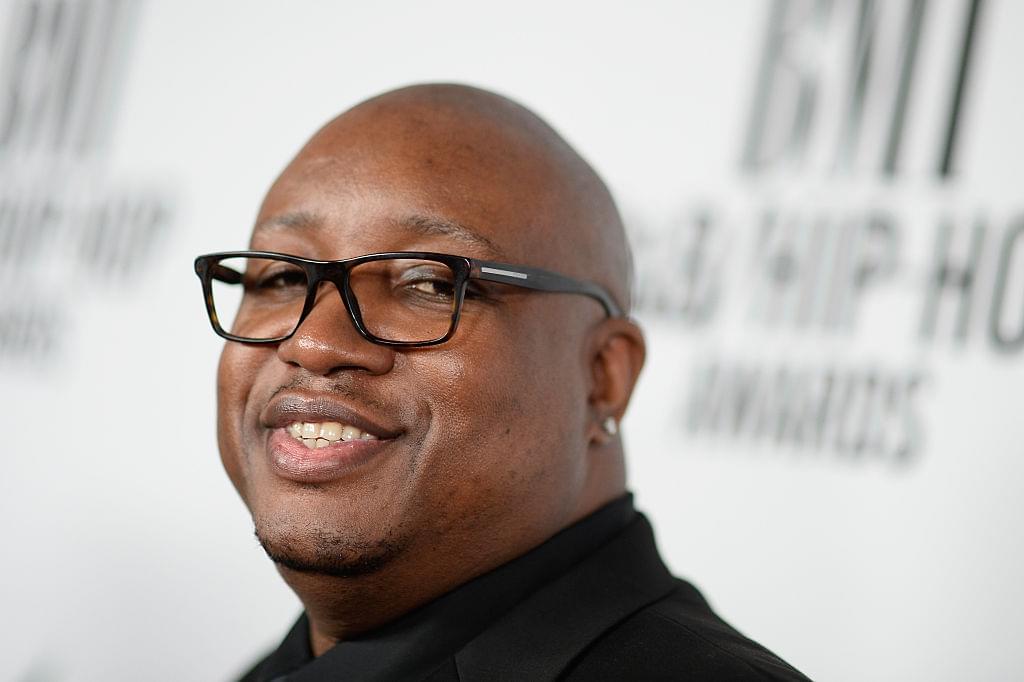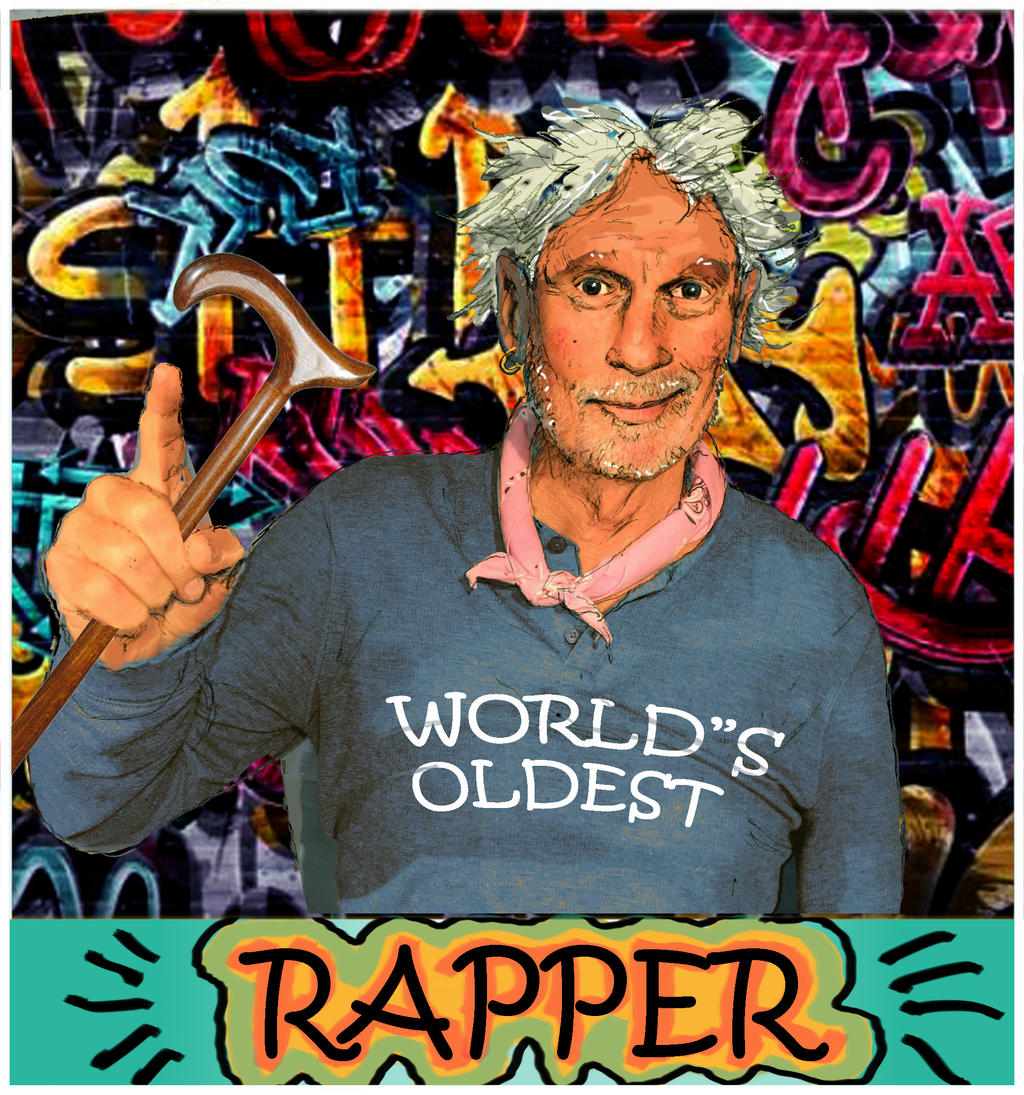Ever wondered who's the oldest rapper still slaying the game? Well, buckle up because we're about to take you on a journey through time, exploring the lives and careers of some of the most iconic figures in hip-hop history. From grandmasters to modern legends, this article dives deep into the world of rap music and uncovers the true OGs who paved the way for today's artists.
Hip-hop is more than just music; it's a culture that has evolved over decades. The genre started with pioneers who were not only creative but also incredibly resilient. These trailblazers laid down the foundation for what we now know as rap music. So, if you're curious about who's the oldest rapper still making waves, you're in the right place.
In this article, we'll explore the origins of rap, highlight some of the oldest rappers still active today, and discuss their contributions to the genre. Whether you're a fan of classic hip-hop or just curious about the history of rap, this read is packed with insights and stories that will blow your mind. Let's get started!
Read also:Hand Lotion For Men Your Ultimate Guide To Soft Healthy Skin
Here's a quick table of contents to help you navigate through this epic journey:
- Biography: The Oldest Rappers
- Origins of Rap Music
- Legendary Artists in Hip-Hop
- Oldest Rappers Still Active Today
- Impact on the Music Industry
- Secrets to Longevity in Rap
- Challenges Faced by Older Rappers
- Evolution of Rap Over the Years
- Connecting with Fans Across Generations
- The Future of Rap Music
Biography: The Oldest Rappers
Who Are the Oldest Rappers?
When it comes to identifying who's the oldest rapper, we need to look beyond just age. It's about the impact, the influence, and the legacy these artists have left behind. Some of the earliest figures in rap music are still active today, and their contributions to the genre cannot be overstated.
Below is a table highlighting some of the oldest rappers and their key details:
| Name | Age | Active Years | Notable Achievements |
|---|---|---|---|
| Chuck D | 63 | 1987 - Present | Frontman of Public Enemy, known for politically charged lyrics |
| Grandmaster Flash | 66 | 1970s - Present | Pioneer of DJing and turntablism, inducted into the Rock and Roll Hall of Fame |
| MC Lyte | 53 | 1988 - Present | First female rapper to receive a Grammy nomination |
| Ice-T | 66 | 1987 - Present | Known for his raw and gritty style, also an actor |
These artists have not only shaped the sound of rap but also its cultural significance. Their stories are a testament to the power of perseverance and passion.
Origins of Rap Music
How Did Rap Begin?
Rap music has its roots in African-American communities in the Bronx, New York, during the early 1970s. It emerged as a form of expression for people who felt unheard and unseen. DJs like Kool Herc and Afrika Bambaataa were instrumental in creating the sound that would later become known as hip-hop.
The art of rapping itself can be traced back even further to African oral traditions, where storytelling and rhythm were combined to convey messages. This rich history laid the groundwork for what we now know as rap music.
Read also:Mendeecees And Yandy Wedding A Royal Love Story You Canrsquot Miss
Some key moments in the evolution of rap include:
- The release of "Rapper's Delight" by The Sugarhill Gang in 1979
- The emergence of Run-D.M.C. in the early 1980s
- The golden age of hip-hop in the late 1980s and early 1990s
These milestones helped solidify rap as a legitimate art form and paved the way for future generations of artists.
Legendary Artists in Hip-Hop
Who Are the True Icons?
When discussing who's the oldest rapper, it's impossible not to mention the legends who have left an indelible mark on the genre. Artists like Grandmaster Flash, Chuck D, and Ice-T are just a few examples of those who have achieved legendary status.
What sets these artists apart is their ability to adapt and evolve with the times while staying true to their roots. They've managed to stay relevant in an ever-changing industry, proving that age is just a number when it comes to creativity and passion.
Some of the most iconic moments in hip-hop history include:
- Public Enemy's groundbreaking album "It Takes a Nation of Millions to Hold Us Back"
- Ice-T's controversial track "Cop Killer"
- Grandmaster Flash's induction into the Rock and Roll Hall of Fame
These moments not only defined the artists involved but also shaped the direction of the entire genre.
Oldest Rappers Still Active Today
Who's Still Making Music?
Believe it or not, some of the oldest rappers are still dropping tracks and performing live. These artists have shown that age is no barrier to creativity and continue to inspire new generations of fans.
Chuck D, for example, is still actively involved in Public Enemy and continues to release new music. His recent projects have addressed contemporary issues, proving that his message is as relevant today as it was in the 1980s.
Ice-T, another veteran of the scene, has not only maintained his music career but has also found success as an actor. Despite his busy schedule, he still finds time to collaborate with younger artists and keep his fans engaged.
Grandmaster Flash, while not as prolific as he once was, still performs regularly and serves as a mentor to up-and-coming DJs and MCs. His influence on the genre remains undeniable.
Impact on the Music Industry
How Have Older Rappers Shaped the Industry?
The impact of older rappers on the music industry cannot be overstated. They've not only influenced the sound of rap but also its cultural significance. Their work has paved the way for countless artists who followed in their footsteps.
One of the most significant contributions of these pioneers is their ability to address social and political issues through their music. Artists like Chuck D and Ice-T have used their platforms to shed light on important topics, sparking conversations and inspiring change.
Additionally, these artists have helped shape the business side of the music industry. They've negotiated groundbreaking deals, set new standards for artist rights, and paved the way for future generations to succeed.
Secrets to Longevity in Rap
What Keeps Them Going?
So, what's the secret to staying relevant in the rap game for decades? According to many of the oldest rappers, it's all about passion, adaptability, and staying true to your roots.
Chuck D, for example, attributes his longevity to his commitment to addressing important issues through his music. He believes that as long as there are problems to be solved, there will always be a place for his voice in the industry.
Ice-T, on the other hand, credits his success to his ability to diversify. By branching out into acting and other ventures, he's been able to maintain a steady income and stay engaged with his fans.
Grandmaster Flash emphasizes the importance of mentoring and passing the torch to younger generations. By sharing his knowledge and experience, he's helped ensure that the legacy of hip-hop continues to grow.
Challenges Faced by Older Rappers
What Are the Hurdles?
Despite their success, older rappers face unique challenges in today's music industry. One of the biggest hurdles is staying relevant in a constantly evolving landscape. With new artists emerging every day, it can be difficult for veterans to maintain their visibility.
Another challenge is adapting to new technology and platforms. Social media, streaming services, and digital distribution have changed the way music is consumed, and older artists must learn to navigate these changes to stay competitive.
Finally, there's the issue of health and wellness. As they age, these artists must prioritize their physical and mental well-being to ensure they can continue performing at a high level.
Evolution of Rap Over the Years
How Has the Genre Changed?
Rap music has undergone significant changes since its inception in the 1970s. From its roots as a form of street poetry to its current status as a global phenomenon, the genre has evolved in countless ways.
One of the most notable changes is the diversification of styles and sounds. What was once a relatively niche genre has now branched out into countless subgenres, each with its own unique characteristics.
Another major shift has been the rise of digital technology. The advent of computers, software, and online platforms has democratized the music-making process, allowing more people than ever before to participate in the creation and distribution of rap music.
Despite these changes, the core elements of rap remain the same: storytelling, rhythm, and a desire to express oneself through music.
Connecting with Fans Across Generations
How Do Older Rappers Stay Relevant?
One of the keys to staying relevant as an older rapper is connecting with fans across generations. This means finding ways to appeal to both long-time supporters and younger audiences who may not be familiar with the artist's earlier work.
Social media has become an invaluable tool for achieving this goal. Platforms like Instagram, Twitter, and TikTok allow artists to share their music, connect with fans, and stay engaged with the latest trends.
Collaborations with younger artists are another effective strategy. By working with up-and-coming talent, older rappers can introduce their music to new audiences while also benefiting from the energy and creativity of the next generation.
The Future of Rap Music
Where Is Rap Heading?
As we look to the future, it's clear that rap music will continue to evolve and grow. The genre's ability to adapt to changing times and embrace new technology ensures its relevance for years to come.
One trend to watch is the increasing globalization of rap. As the genre spreads to new regions and cultures, it's likely we'll see even more diverse styles and sounds emerge.
Another exciting development is the rise of virtual and augmented reality. These technologies have the potential to revolutionize the way music is experienced, offering fans immersive experiences that go beyond traditional concerts and albums.
Ultimately, the future of rap music lies in the hands of its creators and fans. As long as there are people who are passionate about the genre, it will continue to thrive and inspire.
In conclusion, the question of who's the oldest rapper is not just about age but about impact, influence, and legacy. The artists we've discussed today have not only shaped the sound of rap but also its cultural significance. They've shown that age is no barrier to creativity and that the spirit of hip-hop lives on in every generation.
So, what's next? If you enjoyed this article, feel free to leave a comment, share it with your friends, or check out some of our other content. Together, let's keep the conversation going and celebrate the rich history and bright future of rap music!


